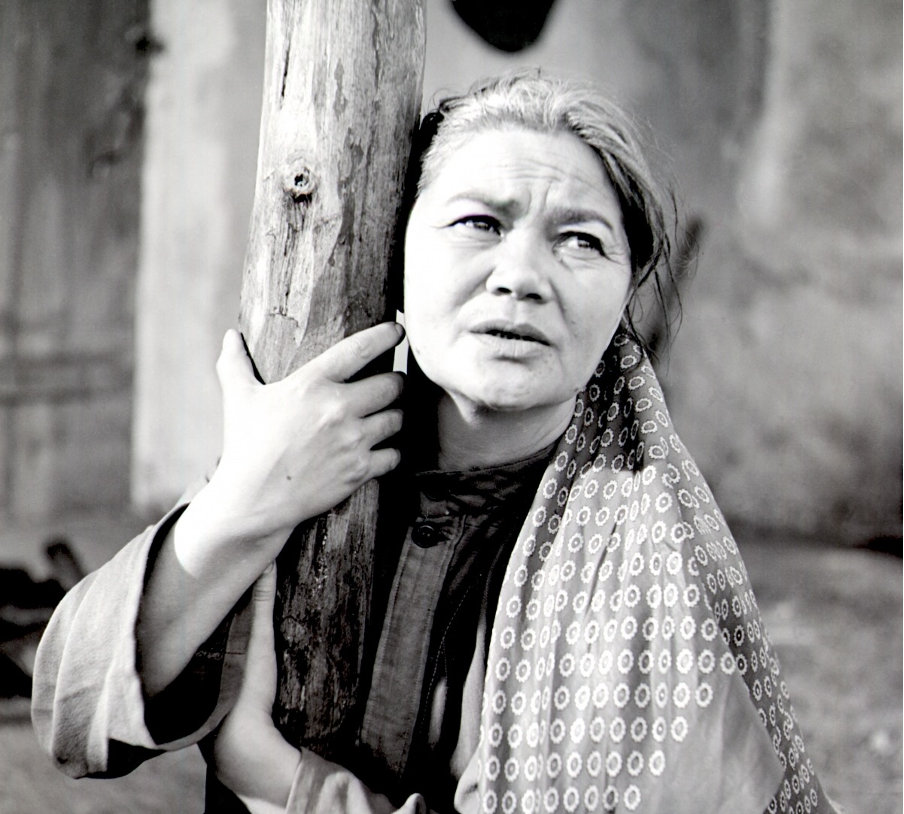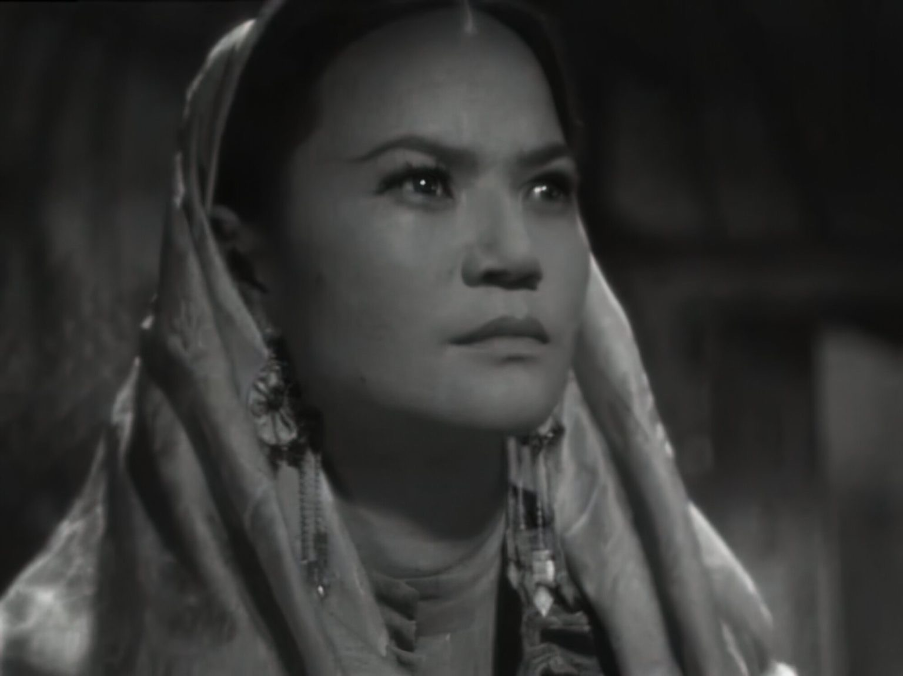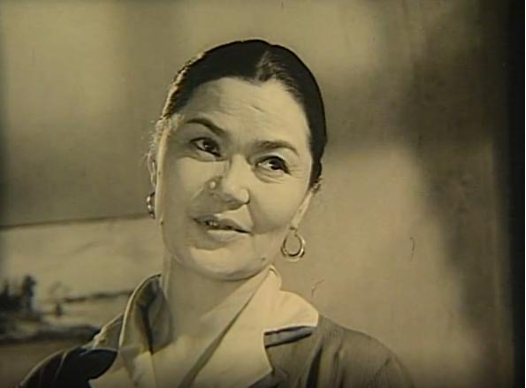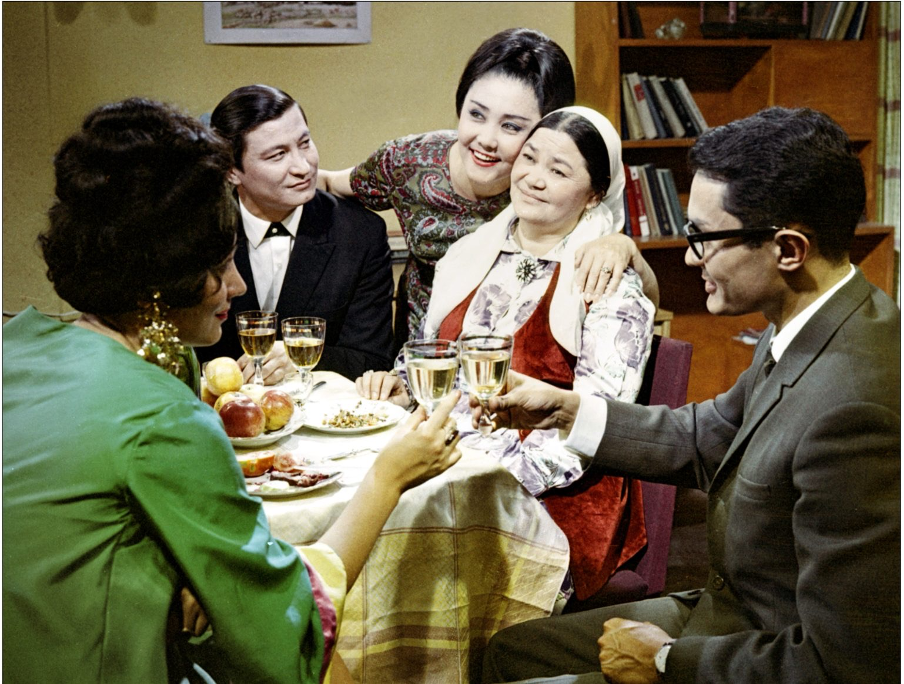Amina Umurzakova is a wonderful image of a Kazakh mother on stage and in life.
Amina Umurzakova is a theater and film actress, Honored Artist of Kazakhstan (1958), People's Artist of Kazakhstan, laureate of the State Prize of Kazakhstan (1966). Thanks to the successfully played roles, the actress became the embodiment of the image of the Kazakh mother on the screen and on stage.

"The tale of the Mother" 1963.
This year, the great actress would have turned 105 years old. Amina Umurzakova was born on March 8, 1919 in the village of Karauyl of the Alash autonomy (now the Abad region). Shortly after her birth, Yergozh's father died and their family was left in the care of her older brother.
Living conditions for the family were difficult, especially during the famine of the 1930s. Amina Umurzakova recalled: "Our family survived only because the older brother, who replaced our father, worked at the tannery at that time. From there, as a Komsomol activist, he was transferred to Alma-Ata for trade union work. He took us all with him. I will never forget how my brother brought wheat in his pockets to save us from starvation."
In 1934, she learned that Leningrad was recruiting students for a theater school, and decided to try her luck. She entered the Leningrad State Theater Institute at the Acting faculty, from which she graduated in 1938.

A shot from the film "Songs of Abai" in 1945.
After graduating from the institute, Amina Umurzakova was assigned to the Shymkent Regional Drama Theater, where she made her debut as Marzhan in the play "Night Peals" by M. Auezov, and also played Bayan ("Kozy Korpesh – Bayan Sulu" by G. Musrepov) and Smeraldina ("Servant of Two Masters" by K. Goldoni).
From 1940 to 1942, A. Umurzakova worked on the stage of the Kazakh State Academic Drama Theater named after M. Auezov in Alma-Ata. During this time, she played a number of roles in such films as "Amangeldy" directed by M. Levin and "Komsomolsk" by S. Gerasimov.
In 1940, shortly before the outbreak of the Great Patriotic War, many theatrical figures were reduced. Amina Umurzakova, being the sister of an enemy of the people, was one of the first to be fired. They stopped inviting her to auditions, and her name disappeared from the posters. In 1941, she had to get a job at the Kazakhfilm film studio as an installer. During this time, Umurzakova played minor roles in films such as The Song of the Giant and The White Rose.
In 1945, film director G. L. Roshal began shooting the film "Songs of Abai". He was looking for an actress for the lead role. Noticing the charming film studio installer, he invited her to audition. The film appeared on screens in 1945. It was the first big role that brought Umurzakova fame and authority. The role is also notable for the fact that for the first time the actress played one of the main characters, such famous cultural figures as Grigory Roshal, Efim Aron, Shaken Aimanov and Mukhtar Auezov worked on the film. Amina Umurzakova became famous among the elite of Soviet cinema.
In 1945, on the initiative of N. I. Sats, a Theater for children and youth was opened in Alma-Ata. In 1949, Amina Umurzakova was invited to the new theater and made her debut as Julia in W. Shakespeare's play "The Two Veronese". Umurzakova worked at the State Kazakh Theater for Children and Youth until retirement and played more than a hundred roles in it. Among them, one can especially mention Louise ("Treachery and Love" by I. Schiller), Saruar and Saadat ("Rabiga" and "Our Gani" by Sh. Khusainov), Kashkadamova ("The Ulyanov Family" by V. Popov), Mother ("Bright Love" by S. Mukanov and "This is my Destiny" by A. Tarazi), Gulzhamal ("Obedient son-in-law" by T. Akhtanov), Azhe ("Here comes the Dock" by S. Shaimerdenov), Aizhan ("Goodbye, soy fairy tale"B. Mukaeva), Keyuan ("Otrar will collapse tomorrow" by O. Bodykov), Raisa Alexandrovna ("Good luck to you, girls" by I. Savvin and J. Tashenova), Kalampyr ("Fate" by Sh. Ualikhanov), Glumova ("Simplicity is enough for any sage" by A. Ostrovsky).
For playing the roles of Kamal in D. Furmanov's "Mutiny" and Shuali in M. Akizhanov's "Ibrai Altynsarin" in 1957, A. Umurzakova became a laureate of the All-Union Theater Festival in Moscow.
While performing in the theater, Amina Umurzakova continued to act in films. In the period from 1945 to 1963, she played a number of roles in films: "Dzhambul" directed by E. Dzigan, "The Girl-dzhigit" by P. Bogolyubov, "The winged gift" by A. Slobodnik and E. Faik, "In one area" by Sh. K. Aimanov and many others. In 1961, the talented actress became a member of the Union of Cinematographers of the USSR.

A shot from the movie "In one area" in 1961.
In 1963, Amina Umurzakova played the main role in A. Y. Karpov's film "The Tale of the Mother". This role has become one of the most successful in the actress' career, and the film is one of the most successful works of Kazakh cinema. The film won the State Prize of the Kazakh SSR, and A. Umurzakova was awarded the award for best Actress at the First All-Union Film Festival in Leningrad in 1964.
After that, in the period from 1963 to 1968, Amina Umurzakova was involved in the films "The Beardless Deceiver" by Sh. K. Aimanov, "The Most Obedient" directed by B. Abdyldaev and L. A. Gurevich.
In 1968, the film by Sh. K. Aimanov "Angel in a skullcap" was released. Amina Umurzakova played the main female role in it. Other famous film actors also took part in the film: B. Rimova, B. A. Tulegenova, E. B. Serkebaev and many others. The role in this film brought Amina Umurzakova to the rank of the best actresses in the country. In the period from 1968 to 1996, the actress played in more than ten films, most of which were starring. The most famous of them are "The Scarlet Poppies of Issyk—Kul" directed by B. Shamshiev, "The Most beautiful Ships" by A. Nitochkin and "Fear, enemy, the ninth son" by V. Pusurmanova and V. Chugunov, in which the actress played the role of Yerkenzhe's grandmother.
The 1991 film by A. Chataeva "Mama Rosa", for which Umurzakova received the prize of the Constellation Film Festival for the best role of an elderly man, became very popular. In 1996, Amina Umurzakova played herself in the biographical film "Amina", directed by her son, Talas Umurzakov. The actress also successfully dubbed films into the Kazakh language.

Since 1996, Amina Umurzakova has stopped acting in films. Being retired, she continued to lead an active life: she starred in TV shows, gave interviews to newspapers, magazines and television channels.
In 1999, she was awarded the Order of Otan, and in 2001 she became the winner of the independent Tarlan Award "For her Contribution" in the Theater nomination.
Amina Umurzakova died on September 26, 2006 in Almaty after a long illness. She was buried in Almaty at the Central Cemetery.




